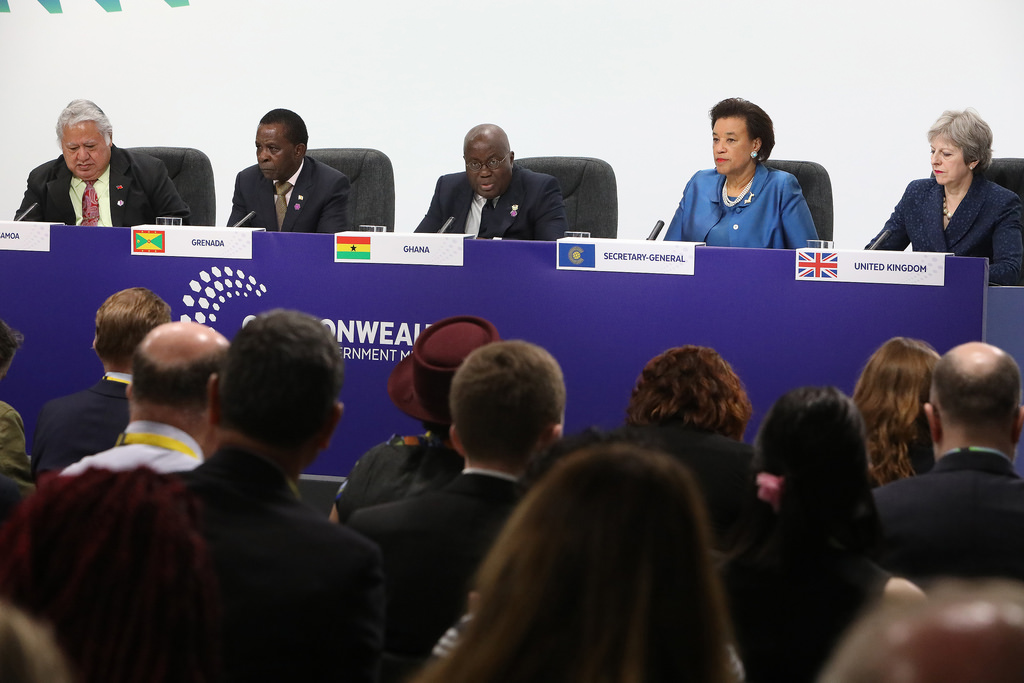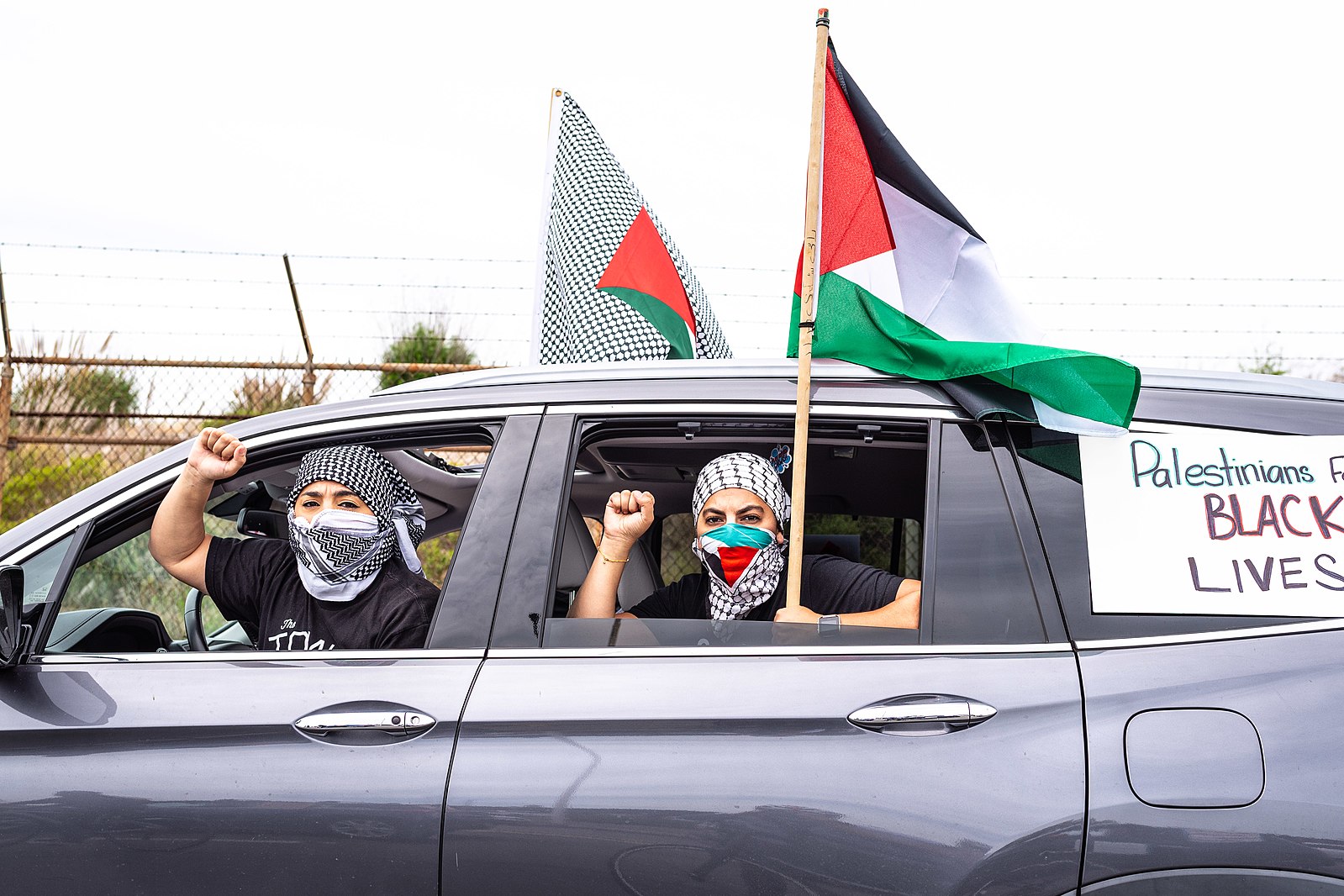
When is an appropriate time to review the subject? Any time. But even more so given the UK’s hosting of the Commonwealth Heads of Government Meetings (CHOGM) in London and surrounding locations, that closed on the 20th April.
The Commonwealth consists of 53 member states and 80 organisations that exist in locations around the globe and work together to promote democracy and peace. Over 40% of the world’s young people (640 million out of 1.8 billion) are members of the Commonwealth. Its countries include 19 in the African continent, seven in Asia, three in Europe, and 11 in the Pacific – all locations where the footprint of colonialism has been stamped, and where the legacy of the imperialist laws relating to same-sex relations are still being experienced. As Chimamanda Ngozi Adichie, in conversation with Reni Eddo-Lodge, comments: colonialism is not historical, it is contemporary and the effects are present everyday.
As of March 2018 there were 37 member states against equality for same-sex Commonwealth citizens. Of the 72 countries in the world where same-sex intimacy is categorised as a criminal offence, 36 of them are member states of the Commonwealth. The colonial legal legacy from the British Empire in 1860 criminalised “unnatural carnal desires” under section 377 of many country’s penal systems and this conservative Victorian edict has remained entrenched in their legal structures. In nine of these countries, the penalty is life imprisonment, whilst in two there remains a risk of execution.
The colonial sodomy laws are an inbuilt imperial homophobic threat carved into the common law of many countries. In 2017 to the High Courts of Trinidad and Tobago, the UK-based LGBTQ+ activist Jason Jones challenged these homophobic colonial laws, which deny a legal right to privacy. Justice Devindra Rampersad, delivering his ruling from the High Court of Trinidad and Tobago, agreed that Section 13 and 16 of the Sexual Offences Act – which criminalise anal sex – were unconstitutional and violate Jones’ right to privacy, liberty and freedom of expression. The pronouncement, on 12th April 2018, has become a landmark ruling as homosexuality has been decriminalised in Trinidad and Tobago, thus nullifying the colonial “saving clause”.
***
The week of the CHOGM saw protests outside of Commonwealth House in London, where activist groups such as African Equality Foundation, and the Peter Tatchell Foundation, along with members of the public had been lobbying the Commonwealth Heads of Government to discuss LGBTQ+ issues at the meeting. This proposal has not been accepted in over six decades of meetings, with any discussions on LGBTQ+ matters being sidelined to NGOs. There are some Commonwealth leaders who are supporters of equality. But these people, for example Desmond Tutu, Christopher Senyonjo, Festus Mogae, and Joaquin Chissano, have historically not been given a voice in the global Commonwealth forum.
A petition, by Edwin Sesange, of the African Equality Foundation, calling for an end to LGBTQ+ persecution in the Commonwealth, was delivered to the Commonwealth headquarters with over 104,000 signatures the week before the summit began. At the start of the CHOGM Peter Tatchell, who has been campaigning against anti-gay laws for over 30 years, wrote a letter to Theresa May, as the British Head of State hosting the Commonwealth summit, asking her to apologise for imposing anti-gay laws. Such an apology did not happen, although in a NGO Commonwealth Forum, that ran concurrently with the Heads of States meetings, the UK Prime Minister did express “deep regrets” for Britain’s historical legacy of homophobic laws across the Commonwealth. Nonetheless, the CHOGM sessions have concluded without LGBTQ+ rights being included on the agenda.
“Commonwealth Heads of Government are denying their commitment to equality and protection of civil, social, social and economic rights of the citizens of their individual nations”
The criminalisation of LGBTQ+ people is a clear breach of the human rights of the Commonwealth citizens and goes against the Section II on Human Rights as written in the Commonwealth Charter that starts with the words:
“We the people of the Commonwealth …
…We are committed to the Universal Declaration of Human Rights and other relevant human rights covenants and international instruments. We are committed to equality and respect for the protection and promotion of civil, political, economic, social and cultural rights, including the right to development, for all without discrimination on any grounds as the foundations of peaceful, just and stable societies. We note that these rights are universal, indivisible, interdependent and interrelated and cannot be implemented selectively. We are implacably opposed to all forms of discrimination, whether rooted in gender, race, colour, creed, political belief or other grounds. (Section II on Human Rights).”
The last sentence of this Human Rights section confirms that the member states of the Commonwealth are opposed “to all forms of discrimination, whether rooted in gender, race, colour, creed, political belief or other grounds.” But their continual refusal to openly discuss the matter of colonialism and the legacy of homophobia on the formal agenda does mean that the Commonwealth Heads of Government are denying their commitment to equality and protection of civil, social, social and economic rights of the citizens of their individual nations.
***
The victory in the Trinidad and Tobago courts on 12th April, as said by Jason Jones, “…is much more than just the legal challenge and constitutional reforms. It is a rallying cry for the LGBTQ+ community and our allies to stand up and be counted! This represents the first moment in the history of the English speaking Caribbean that we have become truly visible and in a populist and meaningful manner.” In Britain, UK Black Pride – led by Phyll Opoku-Gyimah – and the African Equality Foundation, continues to work alongside other LGBTQ+ activists to campaign for full equality for all within the UK and the Commonwealth.
In 2016, Opoku-Gyimah was widely reported for turning down a MBE, stating: “I don’t believe in, and actively resist, colonialism and its toxic and enduring legacy in the Commonwealth, where – among many other injustices – LGBTQ+ people are still being persecuted, tortured and even killed because of sodomy laws, including in Ghana, where I am from, that were put in place by British imperialists.” As the CHOGM 2018 closed in London on the 20th April, the resistance that Opoku-Gyimah expressed in 2016 must be continued by all equality activists until there are full human rights for all Commonwealth citizens regardless of nationality or sexuality.








